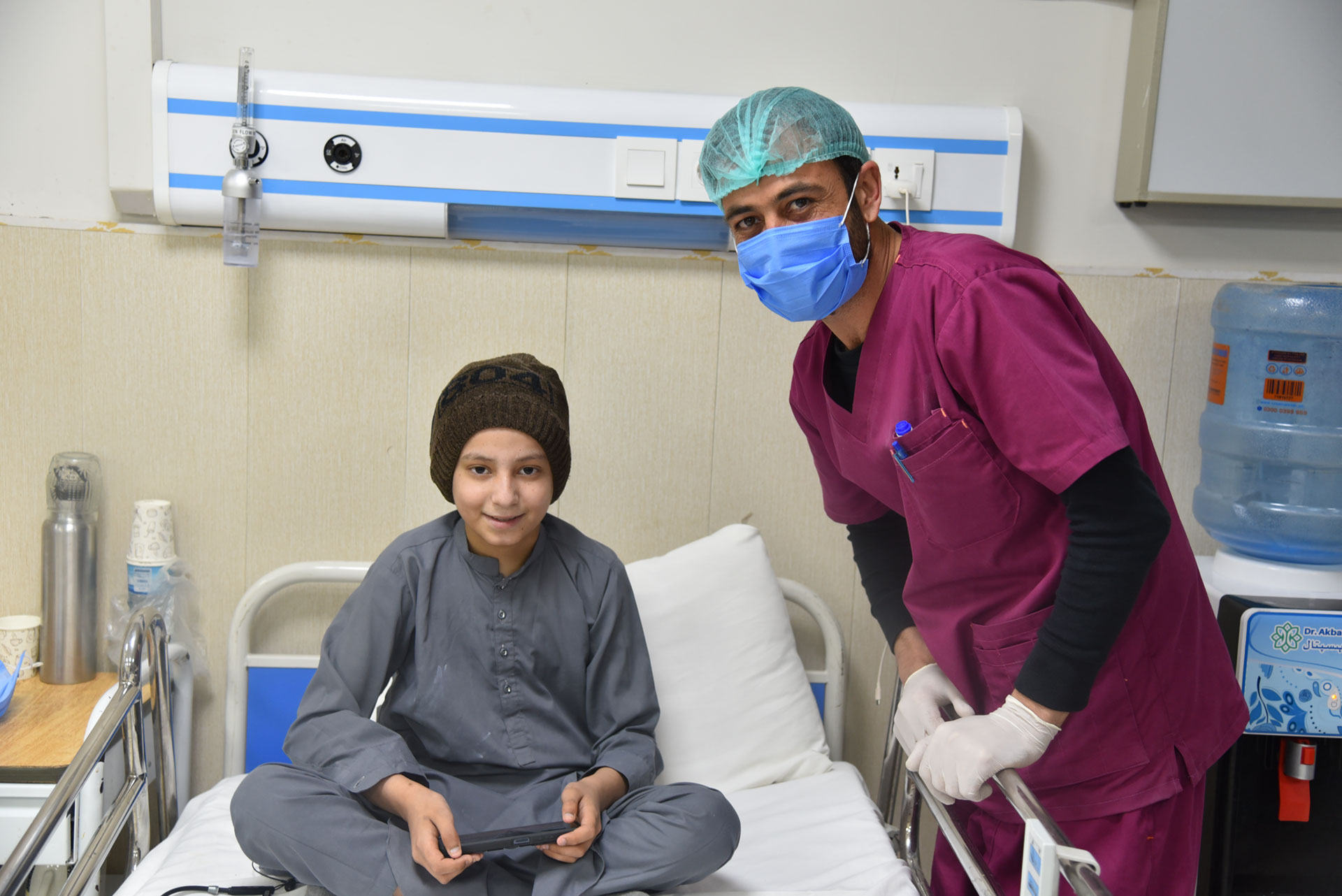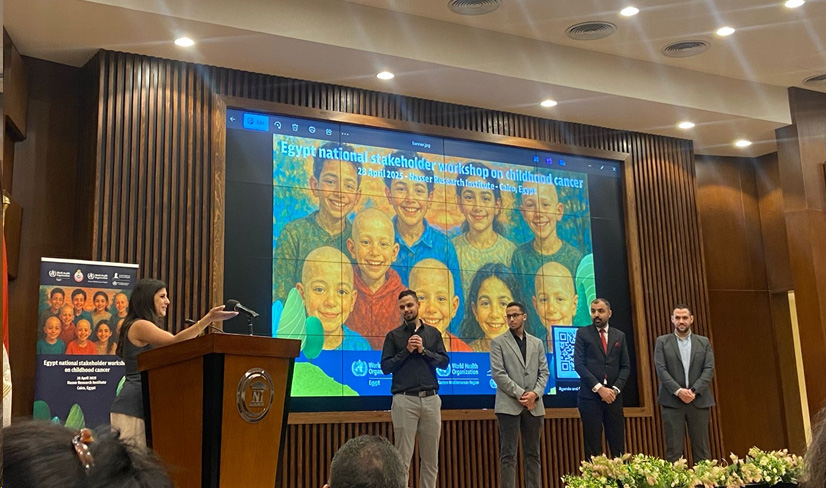 Distribution of gifts to cancer patients on International Childhood Cancer Day 2025. Photo: WHO
Distribution of gifts to cancer patients on International Childhood Cancer Day 2025. Photo: WHO
1 September 2025 – Globally, 400 000 children are diagnosed with cancer annually, which means 3 children are diagnosed with cancer every 4 minutes. Of these cases, 90% occur in low- and middle-income countries, where only a fifth of diagnosed children survive. In contrast, children born in high-income countries have a more than 80% chance of surviving childhood cancer. The difference in survival rates is one of the most significant inequalities across cancer types.
Behind each statistic is a child’s story. To ensure these stories shape policies and inspire change, the voices of survivors must be heard.
During the recent national childhood cancer stakeholder workshop held in Egypt, 4 cancer survivors explained how their journeys shaped their perceptions of the gift of life and spoke about the tremendous efforts by health care providers and their families to relieve their pain and uncertainty. They said the peer support they received and the social bonds they developed with other childhood cancer survivors brightened the most difficult days. The workshop was inaugurated by H.E. the Minister of Health and Population Dr Khaled Abdel-Ghaffar who listened attentively to the speakers.

In 2018, WHO and St Jude Children’s Research Hospital launched the Global Initiative for Childhood Cancer (GICC) with the goal of increasing the survival rate of children with cancer globally to at least 60% by 2030 while reducing their suffering and improving their quality of life.
Member States in the Eastern Mediterranean Region have made significant progress in improving the survival rate of children with cancer by aligning their actions and activities with the CureAll Framework.
This progress is particularly noteworthy given ongoing and protracted conflicts that have resulted in fragile health systems and the limited resources available in many countries in the Region. Eight countries have committed to prioritizing childhood cancer care. In Pakistan, Morocco, the Syrian Arab Republic and Libya, national health workforce capacities are being built to facilitate early diagnosis of childhood cancer. In Pakistan and Jordan, national paediatric oncology protocols have been developed and standardized, while in the occupied Palestinian territory and Syrian Arab Republic this is still in progress. In Egypt, the government is adopting insurance policies and laws to protect families from financial hardship.
The first regional workshop on paediatric palliative care was held in Morocco. In Lebanon, a Paediatric Cancer Committee has been established and includes people with lived experience, nurses, WHO representatives and social workers, underlining the importance of a multidisciplinary approach to childhood cancer.
Accessing affordable, effective and safe medicines represents a major hurdle to achieving the 60% survival rate goal. To overcome the challenge, the Global Platform for Access to Childhood Cancer Medicines was launched in December 2021.
The Global Platform aims to provide end-to-end support, from selecting medicines to their distribution and delivery to hospitals which provide cancer care. Support is provided in an equitable manner in selected countries. The platform pools the procurement of medicines, consolidating country needs into fewer, larger orders, making them more cost-effective to manufacture.
In 2023, Jordan became the first country in the Region to join the platform. It is expected to receive its first batch of medicines in the coming months. The development and finalization of national guidelines for 6 childhood cancers represented significant progress for Jordan and paves the way for similar guidelines to be developed in neighbouring countries.
Following successful efforts to standardize nationwide childhood cancer care, in 2024 Pakistan was selected as one of the second cohort of countries to be enrolled in the Platform. WHO continues to support countries in implementing GICC activities, enhancing their chances of joining the Platform.
This September, as we observe Childhood Cancer Awareness Month, let us unite to raise awareness and strengthen action for every child’s future. While childhood cancer cannot be prevented, it can be cured when diagnosed early and treated comprehensively.
Children’s survival depends on resilient health systems that provide prompt and effective treatment. Children must be given the chance to grow up healthy, no matter where they are born.




